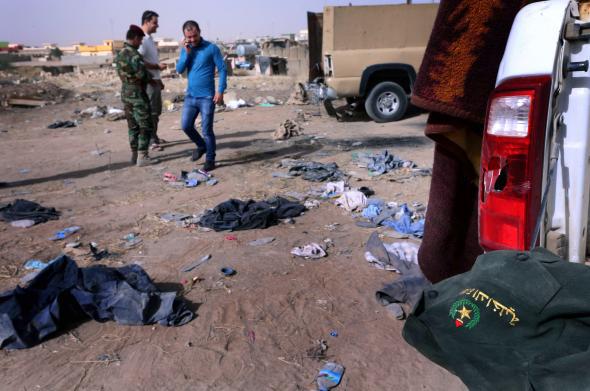More than a decade ago, the U.S. public and political establishment supported a war in Iraq partly based on the false pretense that it was allied with al-Qaida. Now, largely as a result of that war and its aftermath, a large portion of Iraq is under the control of an al-Qaida splinter group and America seems largely indifferent.
Nancy Yousseff of McClatchy reported yesterday that Capitol Hill seems oddly unconcerned by the possible imminent collapse of the Iraqi state at the hands of ISIS extremists. With Secretary of Defense Chuck Hagel on the Hill yesterday to testify about the controversy over the Bowe Bergdahl prisoner swap, not one member of the House Armed Services Committee took the opportunity to ask him about the outright calamity in the country where 4,500 Americans died in roughly a decade of fighting.
One committee staffer told Yousseff, “I think that there is a general sense of apathy about Iraq. … Iraq is mostly viewed in terms of other issues.”
People are starting to wake up a bit today. House Speaker John Boehner accused the president of “taking a nap” on Iraq, and Democratic Sen. Tim Kaine urged him to come up with a plan for the crisis soon.
The president finally addressed the crisis today saying “all the options” are on the table to fight the insurgents, though press secretary Jay Carney specified that this does not include ground troops. Obama made the remark in response to a question about possible airstrikes against ISIS, though the White House has reportedly rebuffed earlier requests from the Iraqi government for such strikes.
Theoretically Obama may have the authority to order them without congressional approval under the original 2002 authorization for military force.
The Iraq crisis seems to have caught Washington off-guard, and also in a particularly anti-interventionist mood. As House Minority Leader Nancy Pelosi put it, “I don’t think there’s any appetite in our country for us to become engaged in any more military activity in Iraq.”
There were discussions of “Iraq fatigue”—the sense that the American public is simply tired of hearing about the country’s troubles—as far back as 2006. Supplanted since then by crises from Libya, to Egypt, to Syria, I’d guess that fatigue is even more entrenched now and while I expect some criticism of the White House on this, I doubt we’re going to see a groundswell of public demand for a robust response to Iraq’s latest crisis.
